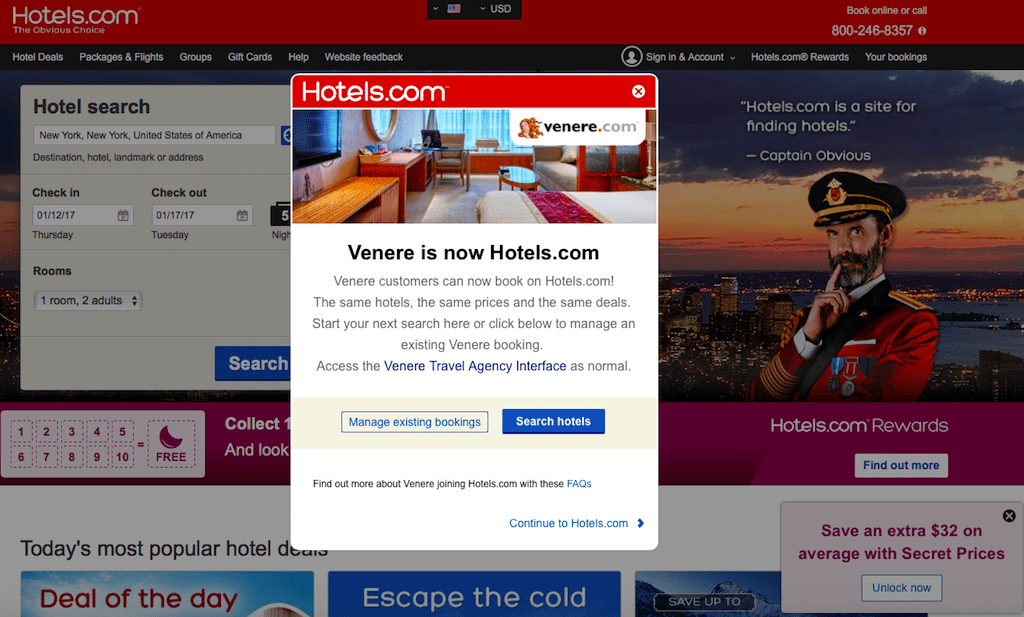Expedia and TripAdvisor Separately Kill 2 Brands That Were Once Sister Companies

Skift Take
In 2008, Venere became Expedia's great hope in Europe to play catch-up and take on Booking.com's dominance. Whether it was a lack of execution or Booking.com's scale advantages being too imposing to overcome, that dynamic never came to fruition.
Expedia Inc. has quietly shut down consumer-facing Venere.com, the Italy-based hotel-booking site that was once seen as Expedia's answer to Booking.com's dominance in Europe.
And TripAdvisor confirmed it will soon be phasing out one of its content sites, Virtual Tourist.
Acquired in 2008, Venere.com now redirects consumers seeking to book a hotel to one of Expedia's flagship brands, Hotels.com. In restructuring Venere, Expedia opted to continuing running Venere's business to business operation in Italy for travel agents, which offers them 8 percent base commission on hotel bookings.
Expedia's terminated Venere's consumer business in December but it wasn't widely reported.
Venere, like Booking.com, operated what's called an agency model. Both companies paid a commission to hotels, and consumers didn't have to prepay for their bookings but instead paid upon arrival.
Booking.com used the agency model to scale its business and plowed gains back into digital marketing while Expedia focused to

